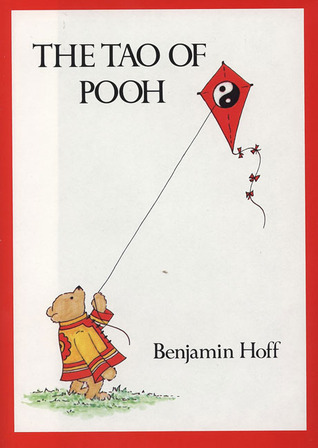Chapter 5: Cottleston Pie
byChapter 5: Cottleston Pie, Hoff argues that Rabbit’s clever schemes often fail because cleverness relies on shallow judgments, which do not stand the test of time. These judgments overlook the deeper “Inner Nature” that gives each thing its unique value. To explain this, Hoff asks Pooh to reflect on the song “Cottleston Pie.” Each verse of the song begins with “Cottleston, Cottleston, Cottleston Pie,” followed by a rhyming line, and ending with the repeated phrase, “Ask me a riddle and I reply: / ‘Cottleston, Cottleston, Cottleston Pie.’” The simplicity of the song represents the Taoist view that things should be allowed to exist as they are, without unnecessary interference or attempts to change their true nature.
The first verse of “Cottleston Pie” features Pooh singing, “A fly can’t bird, but a bird can fly.” This line reflects the Taoist principle that “Things Are As They Are.” Chuang-tse, a Taoist sage, illustrated this concept when he described a warped tree that couldn’t be used for lumber. Instead of lamenting its imperfections, Chuang-tse saw its true value in its role of providing shade. The same idea applies to people, Hoff explains. When individuals respect their own “Inner Nature,” they avoid trouble that arises from trying to be something they are not. Chuang-tse’s rejection of a prestigious position at the prince’s palace echoes this idea: like a sacred turtle that prefers the mud to a life in captivity, he chose authenticity over societal expectations.
In the next verse, Pooh sings, “A fish can’t whistle and neither can I.” This represents the understanding that everyone has limitations, and wise individuals are aware of theirs. It is the foolish who attempt to surpass their natural limitations. A perfect example is Tigger, who boasts to Roo that Tiggers can fly, swim, and climb trees. However, Tigger gets stuck in a tree and needs help from Pooh and Piglet. Tigger’s misadventures highlight the importance of recognizing one’s limitations. In Chinese traditional medicine, there is a saying, “one disease, long life; no disease, short life,” suggesting that those who understand and accept their weaknesses tend to live more balanced lives. By embracing their limitations, individuals can turn them into strengths, much like Piglet’s small size helped him escape from Owl’s ruined house.
The final verse of “Cottleston Pie” is about a chicken, with Pooh singing, “Why does a chicken, I don’t know why.” Hoff points out that even though scientists have tried to explain why chickens behave as they do, the truth remains elusive. The answer to such questions often doesn’t matter. Science and philosophy, Hoff argues, sometimes raise more questions than answers. However, what is more important is recognizing one’s own inner nature and accepting things as they are, rather than seeking explanations that may never come. This view aligns with Taoism’s emphasis on living in harmony with the natural world, without the need to overanalyze or seek endless answers to unimportant questions.
Hoff reflects on the story where Pooh and Piglet attempt to catch a Heffalump, a creature they’ve never seen. Pooh’s plan involves digging a pit and using a jar of honey as bait. However, Pooh inadvertently ends up trapped in his own pit, and Piglet mistakenly believes he’s caught a Heffalump—mistaking Pooh’s trap for the creature. This story exemplifies how, in life, people often try to control and manipulate things beyond their understanding, only to find themselves caught in their own traps. It also demonstrates the Taoist belief that life should be approached with simplicity, trusting that things will unfold naturally.
Hoff explains that “Cottleston Pie” symbolizes the concept of “Inner Nature.” Everyone and everything has a unique inner essence, but people’s circumstances, thoughts, and societal pressures often lead them away from their true nature. Understanding and respecting one’s own inner nature is the first step toward living authentically. As Pooh’s song suggests, it’s not about being someone you’re not, but embracing who you are. The Taoist ideal of self-reliance begins with self-understanding. When individuals recognize their true selves, they can transform their weaknesses into strengths or use them for good. This self-awareness allows people to live more harmoniously with themselves and the world around them.
Hoff brings up a parable by the philosopher Liu An, where a skilled burglar uses his abilities for good during a war. Despite his negative skills, he successfully causes the enemy to retreat, illustrating that even seemingly negative traits can be used for positive purposes. People cannot completely eliminate their flaws, but they can learn to harness them in ways that benefit them and others. This aligns with Taoism’s teaching that embracing all aspects of oneself, both positive and negative, is key to living a balanced life.
In conclusion, Hoff reflects on the idea of “Unbouncing” yourself, a reference to another Winnie-the-Pooh story. After Rabbit, Piglet, and Roo rescue Eeyore from the river, Eeyore complains about being “bounced” into the water by Tigger. To stop Tigger from bouncing, Rabbit plans to abandon him, only to get lost himself, with Tigger eventually finding and rescuing him. Just like Tigger finding his bounce or the Ugly Duckling realizing he is a swan, everyone must recognize their unique inner nature. Understanding and accepting this nature is the first step in personal growth. As Pooh wisely says, “everyone is all right just the way they are,” and embracing this truth leads to true peace and fulfillment.

